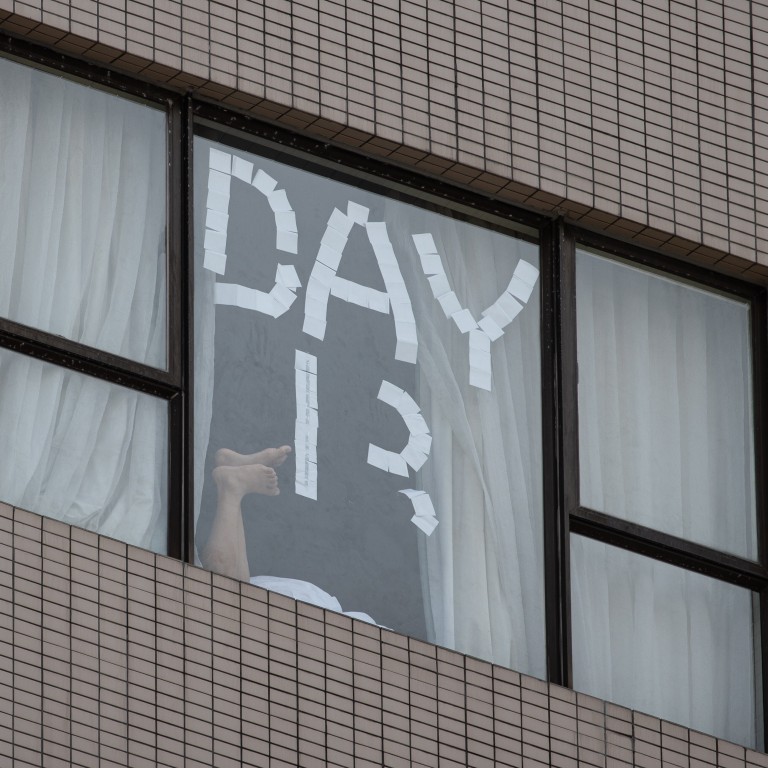
The mental and physical impact of quarantine is especially damaging for athletes who need to move for a living
- Studies show quarantine is detrimental and creates psychological stress, prevalent for athletes who rely on being in peak shape and mentally fit
- Australian athletes returning from Tokyo 2020 were hit with a four-week, double quarantine, demonstrating how reckless governments are being with mental health
One of the most heavily impacted groups in society when it comes to quarantine is athletes. The worst thing you can tell a professional who relies on their body for a living, is to sit still and confine themselves to a room with few physical outlets. Athletes need to travel for international competitions, they simply have no choice if they want to win events, tournaments and championships. Quarantine is essentially antithetical to their very existence.
In a paper published in The Lancet, the negative psychological impact of even a seven-day quarantine, at home, is easily identifiable. Those forced into confined spaces reported a host of issues including thoughts of suicide, anger, depression, anxiety and stress. The medical literature is clear, people are not built to be stuck in a single room, and the longer you keep them there, the more their physical and mental health deteriorates.
One of the latest insights into the impact of quarantine and the unpredictability of the coronavirus on athletes in particular, comes from CrossFit athlete Kara Saunders. She tested positive for Covid-19 after flying from Australia to the US for the 2021 CrossFit Games in August. She flew back home to Australia after only competing for one day after testing negative, and was confined to a hotel room for 14 days and described the ordeal to CrossFit blog Morning Chalk Up.
Saunders detailed phases that got progressively worse, from irritation and frustration to extreme sadness, given she was also away from her young daughter. Saunders also described something you probably will not ever hear an athlete say in a normal setting: her physical health suffered because she could not move around enough.
“Sometimes I’m just flat and lethargic so I’ll just watch a movie or a TV show to switch off a little.”

Saunders’ ordeal is one of many thousands of situations athletes have found themselves in since the start of the pandemic, sometimes right after high-intensity competitions like the Olympics or a world championships. A research study released in March looked at the overall impact on more than 800 Italian athletes and 550 coaches, and their heightened stress levels while in quarantine. It found athletes have a more difficult time relaxing if they aren’t able to train or compete.
The results of the study were clear: quarantine puts athletes – professional or amateur, men or women – at a “psychological health risk” and the study concluded the lockdowns could have long-lasting impacts on their careers and livelihoods. Post-traumatic stress was noted in almost all the athletes, and “that elite athletes could experience high levels of distress due to the fear of their career being disrupted or changes to their sports engagement.”
Jacobs said she had to force officials to allow her “some fresh air” after refusing to move for seven hours. Officials then finally buckled and permitted her to stand at an open window under supervision for 15 minutes.
Saunders said one of the most frustrating things about her entire ordeal was the amount of testing, which included one before she flew home, then on days three, seven, 10, 12 and then again two days after she was out of quarantine. She noted negative results did not permit her to leave at any point.
“Can’t even go out the door. When they knock at the door to drop food you have to wait 30 seconds and then open the door with a mask on to get your food and go right back inside. It’s terrible. I would give anything to just go for a little walk outside.”

We ask the world of our athletes, to commit their bodies and minds to a singular goal with 100 per cent commitment. Now, we’re asking them to train relentlessly, win it all, come home and sit on their hands for seven, fourteen or even 21 days.
Fighting Covid-19 is causing a mental health pandemic, as athletes and citizens alike face the ongoing, seemingly endless prospect of quarantines. A hit to the mind, body and overall well-being like a disease in and of itself.

